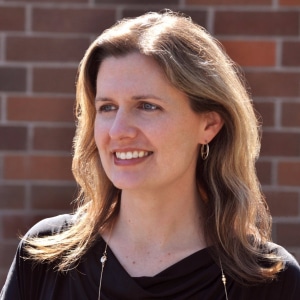Mar 5, 2018 | by The SEEP Network
Over the past decade, funders, practitioners and researchers have made significant investments to understand the impact of Savings Groups. In the mid-2000s, practitioners began documenting the impact of SGs, with findings from 15 studies summarized in Savings at the Frontier. And from 2008 to 2013, randomized control trials were completed across seven African countries, which were later synthesized in The Evidence-Based Story of Savings Groups: A Synthesis of Seven Randomized Control Trials. These early studies examined the member and household level impact of participation in an SG.
Since then, SG programming has evolved considerably. Savings Groups are increasingly promoted within multi-component projects, in combination with other interventions such as health services, agricultural training, advocacy campaigns, gender dialogues, and access to formal financial services. Innovations in program design have targeted vulnerable populations, particularly youth and orphans and vulnerable children (OVCs). In addition, the SG community has broadened significantly to include new Facilitating Agencies, donors, countries, target populations and contexts.
A recent systematic review of the evidence by the SEEP Network catalogs 53 studies on the impact of Savings Groups, conducted since 2004. The webinar presented the findings of this review; examined how participation in SGs, within standalone and integrated programs, contributes to specific types of impacts for members and their households; and analyzed gaps in the existing evidence.
In addition, the webinar introduced participants to an evidence mapping initiative by the Mastercard Foundation’s Savings Learning Lab, and contextualized the impact of Savings Groups within the broader evidence on savings-led financial inclusion initiatives.
This webinar was organized by the SEEP Network, in collaboration with the Mastercard Foundation, Itad, and FSD Africa.

Megan Gash, Director of Research, Evaluation and Learning , The BOMA Project
 Megan Gash is the Director of Research, Evaluation and Learning at The BOMA Project, an international NGO that implements a high-impact poverty graduation program for ultra-poor women in the drought-threatened arid lands of East Africa. Megan has over thirteen years of experience collaborating and coordinating research, evaluation and monitoring activities on multi-sectoral programs with local research teams, academic researchers, and partner organizations in Africa, Asia and Latin America. In 2013, Megan was awarded the Practitioner of the Year by the SEEP Network. She has a Master’s Degree in International Affairs from American University, and a Bachelor’s Degree in International Relations from the University of California, Davis.
Megan Gash is the Director of Research, Evaluation and Learning at The BOMA Project, an international NGO that implements a high-impact poverty graduation program for ultra-poor women in the drought-threatened arid lands of East Africa. Megan has over thirteen years of experience collaborating and coordinating research, evaluation and monitoring activities on multi-sectoral programs with local research teams, academic researchers, and partner organizations in Africa, Asia and Latin America. In 2013, Megan was awarded the Practitioner of the Year by the SEEP Network. She has a Master’s Degree in International Affairs from American University, and a Bachelor’s Degree in International Relations from the University of California, Davis.
Diana Dezso, Team Leader, MasterCard Foundation Savings Learning Lab, Itad
 Diana Dezso is Team Leader of the MasterCard Foundation Savings Learning Lab, an initiative implemented by Itad, in partnership with the SEEP Network. In this role she provides organizational and technical leadership on activities aimed to support learning among the learning partners and others in the sector through the generation, synthesis, curation and dissemination of knowledge. She has worked in senior leadership positions of international organizations including the SEEP Network and ACCION USA.
Diana Dezso is Team Leader of the MasterCard Foundation Savings Learning Lab, an initiative implemented by Itad, in partnership with the SEEP Network. In this role she provides organizational and technical leadership on activities aimed to support learning among the learning partners and others in the sector through the generation, synthesis, curation and dissemination of knowledge. She has worked in senior leadership positions of international organizations including the SEEP Network and ACCION USA.
Categories: Microfinance Savings Groups English Webinar Savings Groups Webinar WebinarsBlogs

1621 North Kent Street, Ste 900,
Arlington, VA, 22209
P 202.534.1400
F 703.276.1433
Website Photos: © mari matsuri
